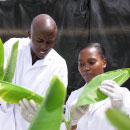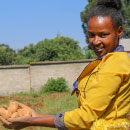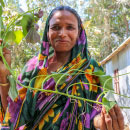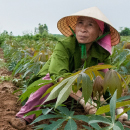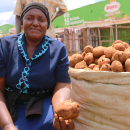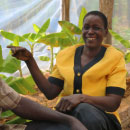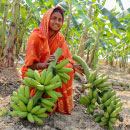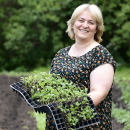While seed multiplication can provide a great opportunity for resource-poor farmers to generate income, this pathway is not always easy, because gender norms affect the additional investment, skills and knowledge needed to enter this business.
Research on seed systems and their operation, using the seed system toolbox, reveals the many ways in which women are disadvantaged, and how interventions can be improved.
Efforts have focused on promoting orange-fleshed sweet potato (OFSP) as a more nutritious option than existing sweetpotato varieties, and sweetpotato vine multiplication systems to ensure that OFSP is accessible and available.
The long dry season in Malawi means that there is often not enough planting material at the start of the rainy season. New seed system technologies include vine multiplication of clean planting material in well-spaced beds combined with irrigation, monitoring pests and diseases, and managed cutting of the vines. However, adoption of the technology package was patchy, particularly by women, and researchers wanted to know why.
In Malawi, sweetpotato is an important crop for food security and better nutrition, and its importance as a source of cash is increasing. The overall conclusion was that vine multiplication increased the burden on women without much benefit, and several factors mitigated against women.
For example, extension workers tend to recruit men for training, even where women own the land. This bias kept knowledge out of women’s hands and cemented patrilineal ideologies as the norm. The bias extended to marketing. Institutions that promote OFSP buy vines from men, not women, but while men claimed that women were not interested in vine multiplication for cash, women said that lack of markets was the main obstacle to their participation. Gender norms — only men can travel to markets and believe they are better at sales than women — were a further constraint.
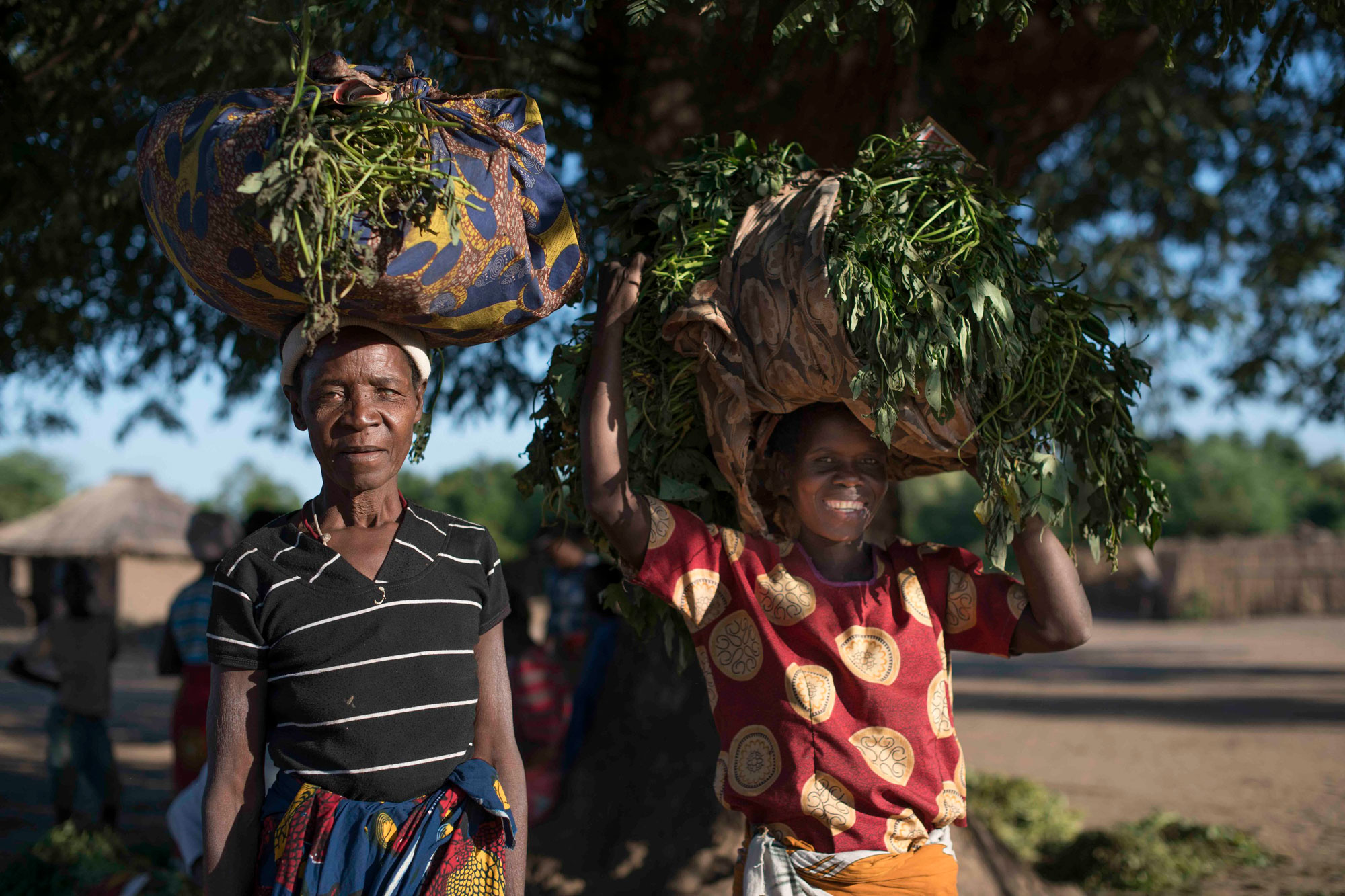
Even the variety makes a difference. The Malawi study included one variety, Zondeni, that produces vines prolifically, but only low root yields. Men like Zondeni, because they can sell lots of vines to NGOs that promote OFSP. The NGO then gives these vines to women, who find the yields disappointing. Men benefit far more from the vines they produce than women from the roots. Women are, nevertheless, adopting OFSP and cultivating it for their families. NGOs need to be aware that women need not just OFSP vines, but vines of varieties that will give stable, high yields.
Also, men were seen as farmers while women were perceived as a cheap or free source of labor. Keeping OFSP vines watered during the dry season requires a pump, which women cannot afford, or hand watering, which increases the burden of labor, especially for girls and young women. Men without pumps order their wives to water the vines. Women cannot call on men to do the same job. More drought-resistant varieties of OFSP would be of great benefit to women, information that breeders should take into consideration.
Individual vine multipliers were originally male dominated. RTB deliberately invited farmer groups with a high proportion of women to join a new vine-multiplication project, to avoid women being marginalized. A follow-up study five years after the end of the project found that women had learned skills and gained confidence through the group, and some of them continued vine multiplication as individuals after their group activities ended.
As long as social relations regard women as a source of cheap labor, not as farmers, women will find it more difficult to move out of poverty. Technical scientists, such as breeders and agronomists, will have to work much more closely with social scientists to mainstream gender responsiveness into seed systems, a collaboration that RTB is promoting enthusiastically.

